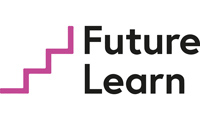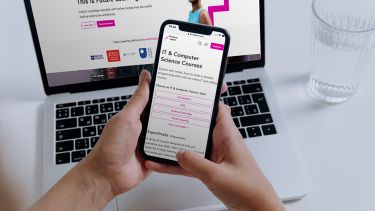From students to professionals, digital education empowers learners to upskill and inform themselves
Online education can empower learners to act on climate change and prepare themselves for the future green economy, said the panellists at a Times Higher Education webinar, held in partnership with FutureLearn at the THE Climate Impact Forum.
“Online offers to do that in a way that the more traditional models can’t do,” said Wyn Morgan, senior higher education adviser at digital education platform FutureLearn. The platform has a long-term project to create a comprehensive climate curriculum.
For Nicky McGirr, online courses programme manager at the University of Reading, her university wants to make cutting-edge climate change knowledge more widely available. The University of Reading, a global leader in climate research, is “really focusing on the impact of climate change and looking at what we can do to help solve this really complex problem”, McGirr said.
Making climate-related courses available online – whether to interest students already on campus or to anyone who wants to inform themselves about these issues – is part of the University of Reading’s mission, McGirr said.
The University of Dundee has developed environmental courses to promote and nurture citizen science, said Mel Woods, chair of creative intelligence at the university. Citizen science involves research and data collection by non-professional scientists.
In particular, citizen science projects – such as the GROW Observatory, a citizens’ observatory funded by Horizon 2020, and We Observe, an ecosystem of citizens’ observatories for environmental monitoring – are examples of “how you make a difference in the world right now”, Woods said. “These kinds of social peer-to-peer ways of learning are extremely important in bringing the global audience around key issues related to climate change and the actions we need to take,” Woods said.
Importantly, online learning broadens the reach of programmes, Morgan said. “We need to recognise that this is a global problem and that we need to hear from those people who are most affected by climate change and who are often marginalised in this debate,” he said. As well as including diverse voices in teaching, online education also creates learning opportunities for a more diverse cohort of students.
The majority of learners at FutureLearn, which has more than 17-million users across the globe, are aged between 26 and 45. “This reflects that many people are engaging in learning in very different ways at different stages of their careers and lives,” Morgan said.
Upskilling is becoming increasingly important, and online education offers flexibility to professional audiences, businesses and even policymakers. “It can bring a range of stakeholders into the space,” Woods said.
Online learning also creates opportunities to engage with alumni. “It’s a great way for us to add value, think about how we can help them upskill or reskill in critical areas and, by meeting their needs, thinking about the industries they are working in and what their employers are looking for and the skills they need to master,” McGirr said.
Digital education is “an opportunity to think about education in new ways for that whole lifelong learning journey”, she concluded.
The panel:
- Wyn Morgan, senior higher education adviser, FutureLearn
- Nicky McGirr, online courses programme manager, University of Reading
- Mel Woods, chair of creative intelligence, University of Dundee
Watch the session on demand above or on the THE Connect YouTube channel.
Find out more about FutureLearn.


